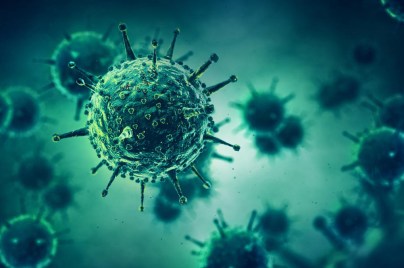HIV community advocates spark a global conversation
Meet three HIV advocates who are using their stories to uplift, spark change, and create spaces of healing and hope across continents
October 7, 2025
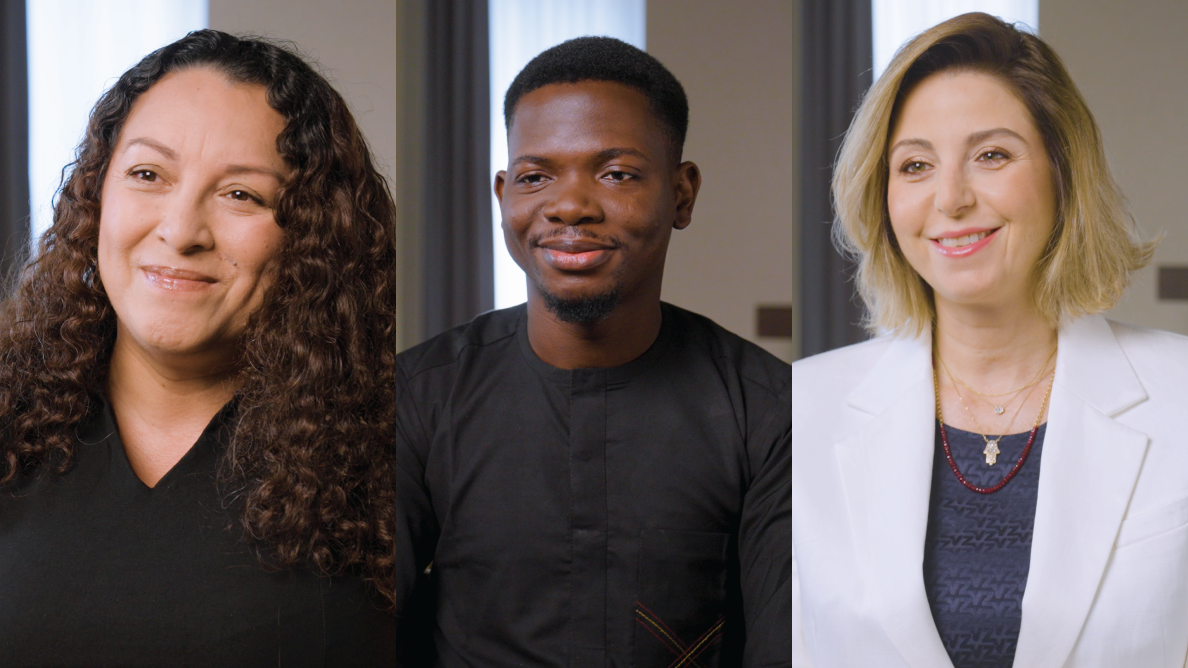
Around the world, HIV advocates are working tirelessly to confront stigma, alleviate loneliness and empower people living with HIV through education, community building and storytelling.
Isaac Ogunkola, Erika Castellanos and Nesrine Rizk exemplify how compassionate advocacy can transform lives. Their work reminds us that even the smallest action — whether it’s sharing a story, offering support or educating just one person — can spark meaningful change.
Above, watch them reflect on their work and read on to learn more about each advocate.
Isaac Ogunkola: Empowering the next generation of HIV advocates
Isaac Ogunkola didn’t set out to be a voice for the HIV community. When he began working with young refugees and local children in Nigeria, the goal was to teach reading and writing. After learning some of them were living with HIV, he reflected on the experience of watching family members die from preventable diseases and decided he would pursue public health.
Ogunkola’s organization connects youth to clinics for testing and treatment of HIV, preventive education and harm reduction services. “People living with HIV face many challenges, and my work is about connecting them to medical services and fostering environments where they can live safely and with dignity,” Ogunkola said.
His biggest impact has been through the development of a peer education program for refugee settlements in West Africa. By training 35 young refugees as educators and advocates, they’ve been able to reach 2,000 other refugees with testing and prevention services. These peer advocates help combat stigma by creating a safe space to discuss topics related to HIV transmission, like sex and drug use, that are often stigmatized.
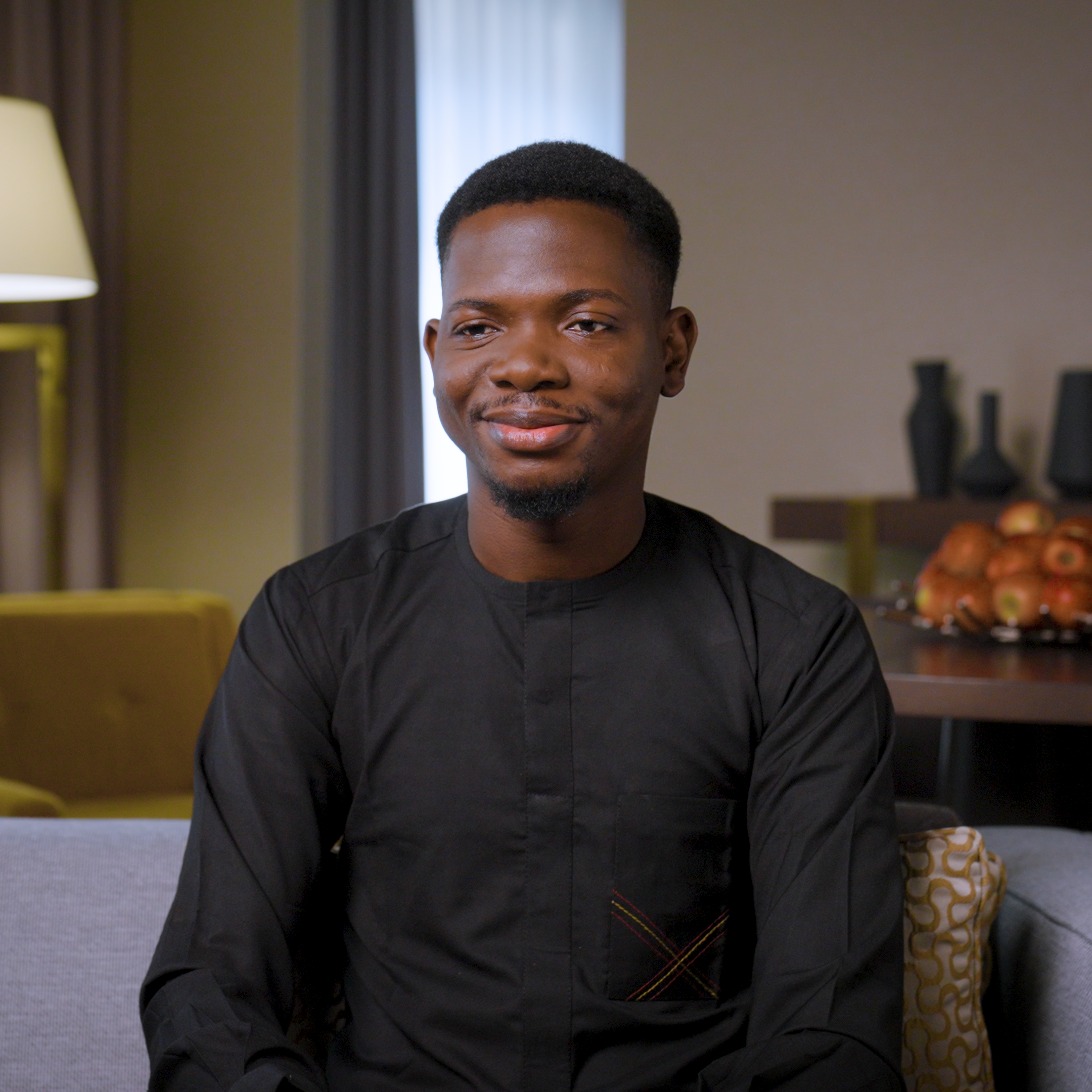
“The peer educators can continue the training while I’m no longer in the settlements. Seeing that the project is self-sustaining, that is success for me.”
- Isaac Ogunkola
Although Ogunkola’s advocacy journey has expanded beyond the grassroots level to working with governments and policymakers, he’s still passionate about the power of individuals to make a difference, especially young people.
“We can tap into the strength of young people,” he said. “We can push young people to be stakeholders in the implementation of these projects right from the beginning and throughout the life of the projects.”
Erika Castellanos: The joyful warrior
Erika Castellanos first encountered the devastation of the HIV epidemic while volunteering at a hospice in Mexico in the early 1990s. As a transgender woman from a small town in Belize, Castellanos understood what it felt like to be stigmatized by her community. So, when she noticed hospice patients with HIV who had been abandoned by their relatives, she stepped in to hold their hands and read them books, making sure they knew they weren’t alone.
In 1995, Castellanos contracted HIV and was told she’d have just six months to live. She’s grateful to have survived that moment, and it was an unexpected encounter with another woman living with HIV at that time that inspired Castellanos to become an advocate herself. This other woman was always cheerful and good-humored about her condition despite her difficult prognosis, which puzzled Castellanos — until she decided to try and do the same. She realized that by embracing her own diagnosis and speaking openly about living with HIV, she could empower others.
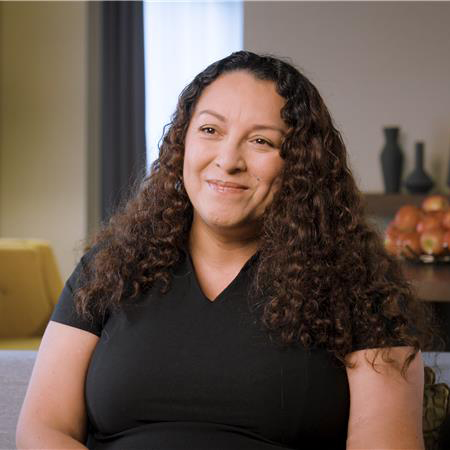
“It felt good to be able to laugh again, even about the things we were struggling with. If I want to do anything in life, I want to make someone else smile.”
- Erika Castellanos
Over the past three decades, Castellanos has advocated for a better quality of life for people living with HIV and the LGBTQ+ community worldwide. She now lives in the Netherlands with her husband and two children, where she runs an organization that advances equality for the transgender and gender diverse communities.
Even as the challenges facing these communities have changed, the most important part of her advocacy work has always been sharing positivity with others.
“Living with HIV is not just about managing the virus, but also about managing the judgment and prejudice that comes with it,” she said.
Castellanos emphasizes the importance of sharing stories to combat loneliness and stigma. “Don’t be shy,” she urges. “Speak out. Share your stories. Someone else will hear your message and no longer feel alone.”
Nesrine Rizk: Bridging medicine and social science in HIV care
Dr. Nesrine Rizk believes medicine is not just a science, but also a social discipline, especially when treating people with infectious diseases like HIV.
“Because of its history and transmission route, HIV is deeply intertwined with cultural norms, stigma and how people live and interact,” said Rizk, who practices in Lebanon.
Rizk advocates for comprehensive education of health care providers and the public, policy reform and community engagement to dismantle stigma.
“Stigma will impact the ability of a person to access prevention methods, stigma will impact an individual’s access to HIV health care, and stigma will affect treatment and adherence to therapy,” she said. “Stigma creates barriers to accessing prevention, care and treatment, and can lead to late diagnosis and increased mortality. It impacts their quality of life profoundly.”
In Rizk’s region, access to condoms can be limited, at-home testing is often unavailable and patients sometimes feel compelled to hide their medication from loved ones. These additional barriers to care have, in part, contributed to the region’s steep rise in new infections.
Rizk believes physicians should normalize discussions about sexual health and HIV in primary care settings, just as providers would address cholesterol or blood pressure.
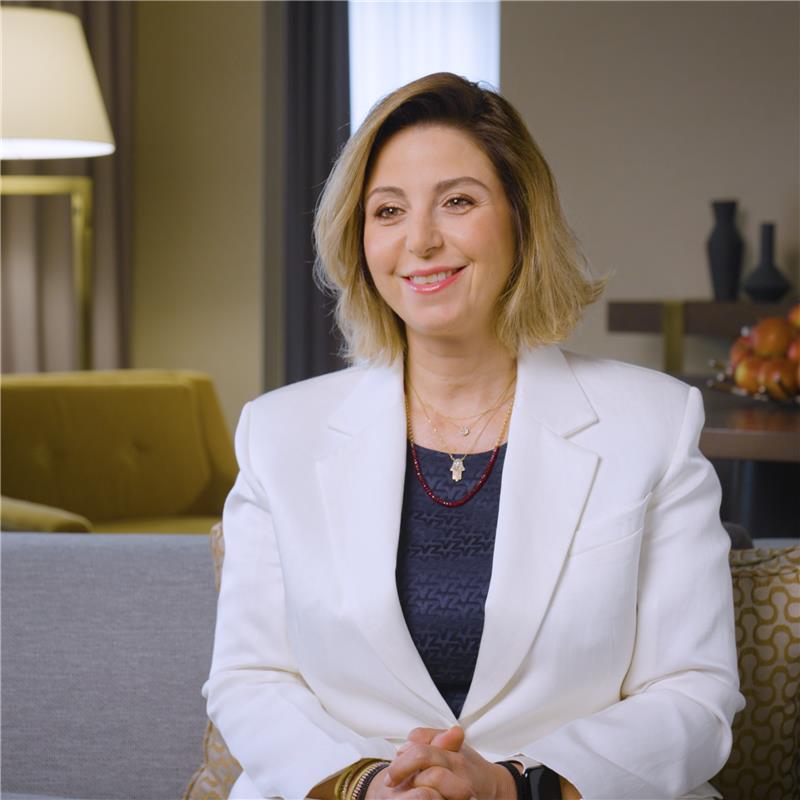
“The bond between providers and people living with HIV is unique,” she said. “Being present to support patients throughout their life journey is essential.”
- Nesrine Rizk
These stories are a powerful reminder that HIV advocacy is not just about HIV — it’s about humanity. Through empathy, courage and connection, individuals like Ogunkola, Castellanos and Rizk show us that change often begins with one person making the effort to care. Whether by listening, sharing or simply standing beside someone on their journey, we all have the power to make a difference.


